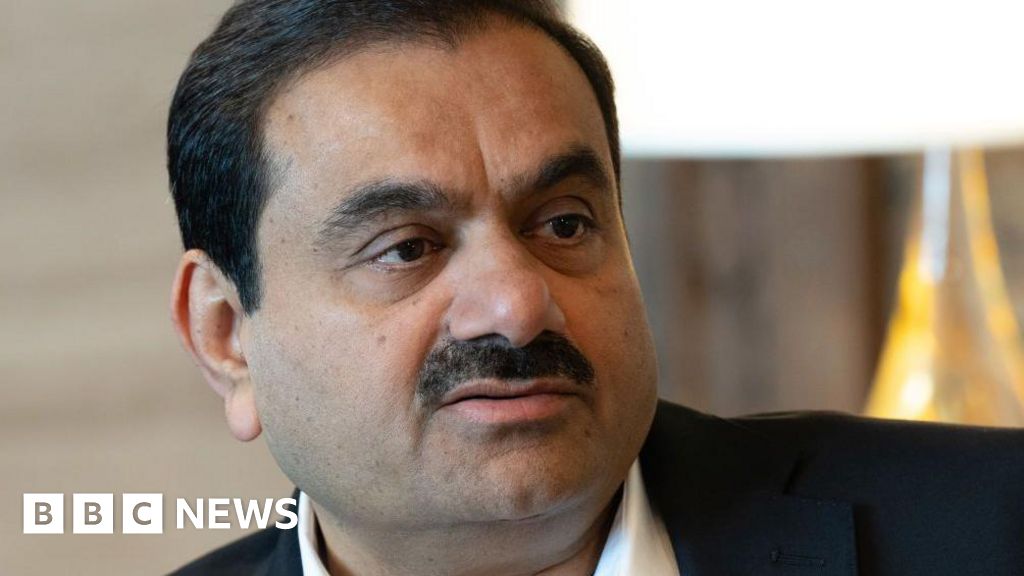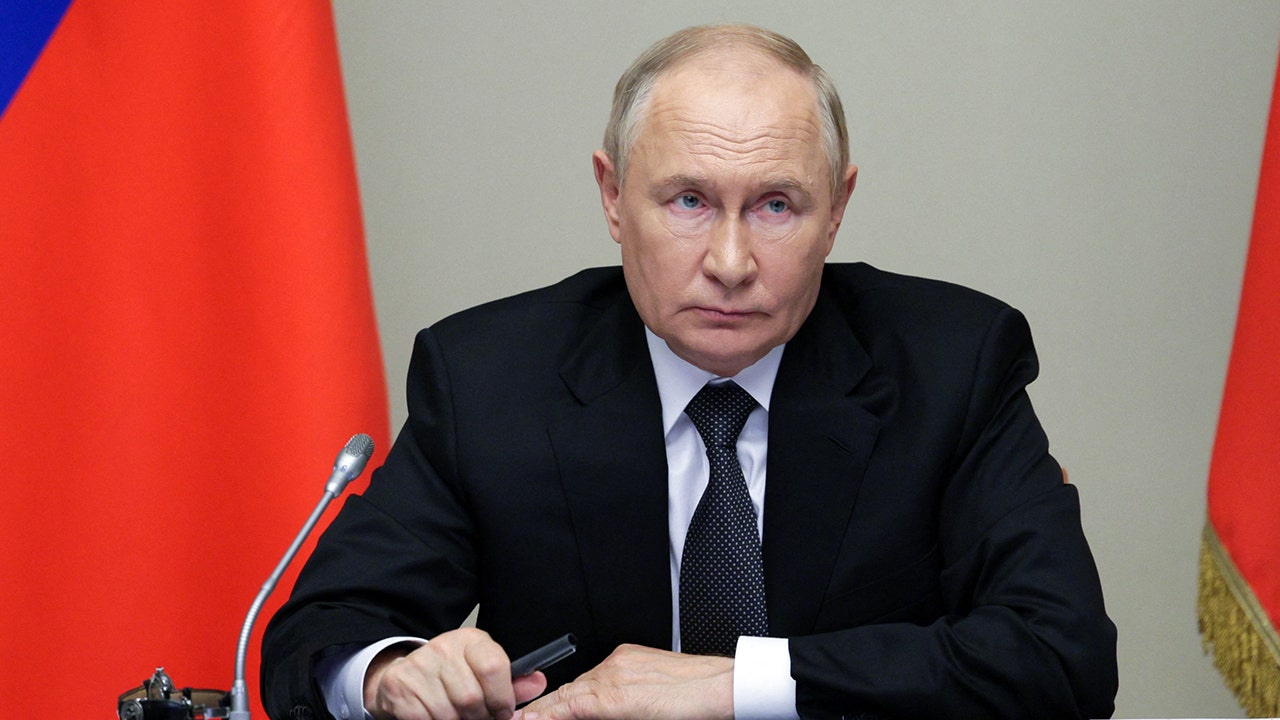World
Middle East crisis live: Beirut hit by ‘most severe’ strikes of conflict after intense overnight bombardment by Israel

Beirut hit by ‘most severe’ strikes of conflict after intense overnight bombardment by Israel
In the last few hours Beirut has been under intense air strikes by Israeli forces. Local media have described the strikes as the most severe of the conflict so far, with some landing near the airport where flights are taking off with hundreds of foreign evacuees. Explosions have been reported and photographed across the city.
Israel has also continued to target Gaza and the West Bank, with air strikes on a mosque in Gaza killing at least five people, according to Reuters. Al Jazeera reports up to 18 fatalities at the mosque, which eyewitnesses told Reuters was being used to house displaced people. The Israeli air force said the mosque was being used by Hamas as a command centre, and that it took steps to reduce harm to civilians.
In other developments:
-
Israel strikes hit south Beirut and its outskirts on Saturday night, official Lebanese media reported. “Israeli enemy warplanes carried out four very violent strikes on [Beirut’s] southern suburbs, and one strike on the Chweifat” area, with ambulances rushing to the site, Lebanon’s National News Agency said. Correspondents in Beirut reported hearing explosions, and Agence France-Presse footage showed plumes of smoke rising from the targeted areas.
-
An Israel military spokesman said the country would retaliate against Iran for the Iranian missile attack at “the timing which we decide”. “The way in which we respond to this disgraceful attack will be in the manner, at the location and the timing which we decide, according to the political leadership’s instructions,” Rear Admiral Daniel Hagari said in a broadcast statement on Saturday, according to a Reuters report.
-
Iran said any attack by Israel would be met with an “even stronger” retaliation, as tensions continue to rise between the two countries. “Our reaction to any attack by the Zionist regime is completely clear,” Abbas Araghchi, Iran’s foreign minister, told reporters in Damascus, Syria. “For every action, there will be a proportional and similar reaction from Iran, and even stronger.”
-
Benjamin Netanyahu said Emmanuel Macron, the president of France, was a “disgrace” for calling for a halt on arms deliveries to Israel. “The axis of terror stands together. But countries who supposedly oppose this [axis] call for an arms embargo on Israel. What a disgrace,” the Israeli prime minister said. “Well let me tell you this Israel will win with or without their support but their shame will continue long after the war is won.”
-
Macron’s office responded with a statement of its own later Saturday, describing Netanyahu’s reaction as “excessive and detached from the friendship between France and Israel”. It said France was still “a steadfast friend of Israel”.
-
The president of Ireland sharply criticised Israel’s demand that UN peacekeepers leave their positions in southern Lebanon. “It is outrageous that the Israel Defense Forces (IDF) have threatened this peacekeeping force and sought to have them evacuate the villages they are defending,” Michael Higgins said. The IDF had requested that peacekeepers operating on the “blue line” between Israel and the Golan Heights “relocate”.
Key events
As we reported in an earlier post, the Israeli military has said its forces have surrounded the Jabalia area of northern Gaza.
Moath al-Kahlout, from Al Jazeera, was broadcasting a news update near Kamal Adwan hospital in Jabalia when he was interrupted by what appeared to be an airstrike. Shortly afterwards, a van rushed to the hospital bringing injured people.
“The situation here in northern Gaza is deteriorating as the Israeli army intensifies its bombing,” al-Kahlout said.
He added:
An entire family was killed by the Israeli army in the overnight attacks.
The Israeli army dropped leaflets on the Jabalia refugee camp ordering them to flee their homes, and this alarming development suggests that the Israeli army is preparing for further attacks.
This may lead to more civilian casualties and injured people.
The Lebanese government has said schools will postpone the start of the academic year due to intensifying Israeli airstrikes against the Hezbollah militant group.
Education minister, Abbas Halabi, has said the new start date for the more than one million Lebanese students will be 4 November due to “security risks,” , according to news agency AFP.
Israeli military preparing for possible rocket launches ahead of 7 October anniversary
Israel’s military has said it anticipates possible long-range rocket fire from the Gaza Strip ahead of the anniversary of the 7 October attacks, according to reports from the Times of Israel.
Military sources told the newspaper it is bolstering its defences along the Gaza border and in the Netzarim Corridor area in the Strip’s centre, where the IDF maintains a semi-permanent presence, in anticipation of possible attacks.
The IDF said it is also coordinating with police and medical services in Israeli border towns.
“The Southern Command is prepared in defence and attack for several scenarios during the coming month, along with allowing memorial events in the [Gaza border communities] to be carried out safely,” the IDF said in a statement seen by the newspaper.
Although much of Hamas’ military organisation has been dismantled, Israeli operatives said it can still carry out rocket attacks.
This week marks one year since the 7 October attacks on Israel, where Hamas militants and allied groups killed about 1,200 people and took 251 hostage.
Germany’s chancellor, Olaf Scholz, has reiterated calls for a ceasefire in Gaza ahead of the first anniversary of Israel’s war on the territory, which broke out after the Hamas-led 7 October attacks, in which about 1,200 people were killed and 250 taken hostage.
“Unfortunately, on this first anniversary of Hamas’s terror attack on Israel, peace or even reconciliation in the Middle East seem more distant than ever,” Scholz said in a video message.
The German government “continues to persistently advocate for a ceasefire, which must now finally come about,” he added.
“We are in close contact with our international partners to prevent a further escalation of the conflict,” Scholz said.
Vor einem Jahr haben Terroristen der Hamas weit über 1000 Israelis ermordet, hunderte verschleppt. Sie haben zugleich eine Katastrophe für das palästinensische Volk ausgelöst.
So viel Leid, so viele Tote.
Wir setzen uns deshalb weiter beharrlich für einen Waffenstillstand ein. pic.twitter.com/2w9mNC28kW
— Bundeskanzler Olaf Scholz (@Bundeskanzler) October 6, 2024
He went on to warn against rising anti-Jewish sentiment in Germany, which has been one of Europe’s most unconditional backers of Israel since last October.
“It must never be the case that Jewish citizens here in Germany have to live in fear and terror,” Scholz said.
“We will never accept antisemitism and blind hatred of Israel. The Jewish people here in Germany have the full solidarity of our state,” he added.
More than 5,000 antisemitic incidents were recorded in Germany in 2023, half of them after the 7 October attacks, according to Felix Klein, the government’s commissioner for the fight against antisemitism.
There were a record 1,926 anti-Muslim incidents registered in Germany last year by the CLAIM network of NGOs monitoring Islamophobia and anti-Muslim hatred. That marked a 114% rise on 2023, with incidents shooting up in particular after 7 October.
The Israeli military are reported to have detained at least 15 Palestinians in the occupied West Bank during the last 24 hours, including a journalist and former prisoners.
The arrests were made across the areas of Hebron, Bethlehem, Tulkarem and Tubas, the Palestinian Prisoner’s Society and the Detainees and Ex-Detainees Affairs Commission said.
Over 11,000 Palestinians have been detained in Israeli raids across the occupied West Bank since last October, the groups said.
Human rights groups and international organisations have alleged widespread abuse of inmates detained by Israel in raids in the occupied West Bank.
They have described alleged abusive and humiliating treatment, including holding blindfolded and handcuffed detainees in cramped cages as well as beatings, intimidation and harassment.
A member of the UK government has said it is on “standby” should there be more demand for Britons to get out of Lebanon.
Speaking to the BBC’s Sunday with Laura Kuenssberg programme, science and technology secretary Peter Kyle said the government would use “whatever is needed whether it’s more chartered flights or whether it’s the military” to get people out.
Kyle said: “We’ve already laid on three flights which have brought people out, there’s a fourth one leaving today. And we’re on standby: if the demand is there we will use whatever is needed, whether it’s more chartered flights or whether it’s the military.”
Nations around the world have begun evacuating their citizens from Lebanon due to escalating tensions and conflict between Israel and the Iran-backed Lebanese armed movement, Hezbollah.
The U.S. deployed dozens of troops to Cyprus to prepare for an evacuation of Americans. It is also working with airlines to ensure additional flights are available for Americans to leave the country.
Other countries coordinating evacuation efforts include: Brazil, China, Canada, Cyprus, Denmark, France, Germany, Greece, Italy, Japan, the Netherlands, Poland, Portugal, Romania, Russia, Slovakia, South Korea, Spain, Australia and Turkey.
26 people killed in Israeli attacks on former school and mosque in Gaza, health ministry says
Gaza’s health ministry has issued an update on the amount of people killed by Israeli strikes on a school, and a mosque serving as a shelter in Deir al-Balah, central Gaza, on Saturday. The previous death toll was 24. It has been increased to 26. Dozens of people were reported to have been injured. The Israeli military claimed it had targeted Hamas militants in the strikes.
At least 23 people were killed and 93 others wounded in Israeli bombing across Lebanon yesterday, the health ministry has said.
Israeli raids targeted towns and villages of south Lebanon, Nabatieh, the eastern governorate of Beqaa, Baalbek-Hermel, Mount Lebanon, and the north, the ministry added in a tweet on their X account.
These figures do not include casualty deaths from more recent Israeli bombardment on Beirut’s southern suburbs after midnight.
Since 23 September, Israeli strikes against Hezbollah across Lebanon have killed more than 1,110, according to official figures released earlier today.
Death toll from war in Gaza rises to 41,870
At least 41,870 Palestinians have been killed by Israel’s military offensive in Gaza since 7 October, according to latest figures released by Gaza’s health ministry.
The health ministry also reported at least 97,166 people have been injured. The ministry previously said thousands of other dead people are most likely lost in the rubble of the enclave.
The Guardian’s Jason Burke and Malak A Tantesh spoke with families in Gaza about their year of loss and displacement. You can read more about this here.
Al Jazeera is reporting the Israeli military has surrounded the Jabalia refugee camp in northern Gaza.
The media outlet quoted a Gaza civil defence agency spokesman Mahmud Bassal who said there were many casualties after multiple strikes rocked Jabalia through the night.
The Israeli military said in a statement: “The troops of the 401st Brigade and the 460th Brigade have successfully encircled the area and are currently continuing to operate in the area.”
The statement added intelligence indicates the “presence of terrorists and terror infrastructure in the area of Jabalia … as well as efforts by Hamas to rebuild its operational capabilities in the area.
“Prior to and during the operation, the [air force] struck dozens of military targets in the area to assist ground troops.”
The Jabalia refugee camp has regularly been targeted by Israeli forces since the start of the war in Gaza, displacing and killing its residents.
Najib Mikati, the caretaker Lebanese prime minister, has said that his government continues to support the “joint call for a ceasefire” which was launched last week by France and the US, as Israeli airstrikes continue to hit his country.
The BBC are quoting him as saying earlier today that Lebanon continues to “demand that pressure be exerted on Israel to respect the ceasefire and immediately implement resolution 1701”.
Mikati has said that a diplomatic end to the escalating war would be a “win-win” for Israel and Lebanon and “all parties” would respect such a deal. He has said he hoped to deploy 10,000 Lebanese army troops in the south if a ceasefire is agreed.
The proposal for a 21-day temporary ceasefire between Israel and Hezbollah was announced by the US president, Joe Biden, and his French counterpart, Emmanuel Macron, on 26 September 2024, to make way for broader negotiations.
They urged Israel and Lebanon to back the move, which was also endorsed by the UK, Australia, Canada, the EU, Germany, Italy, Japan, Saudi Arabia, the United Arab Emirates and Qatar.
As we have mentioned in a previous post, there have been reports of intense Israeli airstrikes over Beirut from late Saturday into Sunday. Nafiseh Kohnavard, the BBC’s Middle East correspondent, who is in Beirut, described it as the worst night of attacks on the Lebanese capital and its suburbs since the start of this conflict, which began in late September (although the Israeli military and Hezbollah have been trading fire since 8 October 2023).
Lebanon’s official national news agency said targets included a petrol station and a warehouse for medical supplies. Lebanese media described the blasts on the Lebanese capital as “very violent”, saying ambulances rushed to affected sites. Israeli attacks hit several neighbourhoods in Dahiyeh, the southern suburbs of Beirut, as well as the road leading to the Rafic Hariri international airport, according to Al Jazeera.
Hezbollah, the Iran-backed Lebanese militant group, said it targeted Israeli forces with artillery after they tried to infiltrate towards Khallat Shuaib in Blida, in southern Lebanon.
A statement said fighters fired rockets at Israeli troops during the evacuation of “dead and wounded soldiers” in the Menara border area shortly after midnight. Hezbollah also said it launched assault drones against an Israeli military base.
23 out of 38 hospitals in Gaza now out of service – report
Reporters from Wafa, the Palestinian news agency, have been told by medical sources that 23 out of 38 hospitals in the Gaza Strip are now out of service amid relentless Israeli airstrikes which have targeted healthcare facilities over the nearly year-long war.
Local health authorities further reported that 986 healthcare workers have been killed during the war, with Israeli attacks reportedly rendering 130 ambulances inoperable. These figures have not been independently verified by the Guardian.
The following is from a press release from Doctors without Borders published earlier this week. Citing data from a UN humanitarian update on 23 September 2024, the charity said 17 out of 36 hospitals are partially functional amid crippling shortages of fuel, medicine and essential supplies.
The press release reads:
As medical needs are growing exponentially, people’s options for care are shrinking. Israeli forces have committed widespread and systematic attacks on Gaza’s health care system and other vital civilian infrastructure. The health care system is now on the edge of collapse.
Today, only 17 out of 36 hospitals are partially functional. Warring parties have conducted hostilities near medical facilities, endangering patients, caretakers, and medical staff. Six MSF colleagues have been killed. From October 2023, staff and patients from MSF have had to leave 14 different health structures, due to serious incidents and ongoing fighting.
Each time a medical facility is evacuated, thousands of people lose access to lifesaving medical care. This will have consequences on people’s health, not just in the immediate term, but in the weeks and months to come.
Summary
-
Israel strikes hit south Beirut and its outskirts on Saturday night, official Lebanese media reported. “Israeli enemy warplanes carried out four very violent strikes on [Beirut’s] southern suburbs, and one strike on the Chweifat” area, with ambulances rushing to the site, Lebanon’s National news agency said. Correspondents in Beirut reported hearing explosions, and footage from the Agence France-Presse (AFP) news agency showed plumes of smoke rising from the targeted areas.
-
At least 24 people have been reported killed in the strike on a school and mosque in Gaza. Eyewitnesses and a nearby hospital told news agencies that the mosque was being used to house displaced people.
-
An Israel military spokesperson said the country would retaliate against Iran for the Iranian missile attack at “the timing which we decide”. “The way in which we respond to this disgraceful attack will be in the manner, at the location and the timing which we decide, according to the political leadership’s instructions,” Rear Adm Daniel Hagari said in a broadcast statement on Saturday.
-
Iran said any attack by Israel would be met with an “even stronger” retaliation, as tensions continue to rise between the two countries. “Our reaction to any attack by the Zionist regime is completely clear,” Abbas Araghchi, Iran’s foreign minister, told reporters in Damascus, Syria. “For every action, there will be a proportional and similar reaction from Iran, and even stronger.”
-
Benjamin Netanyahu, the Israeli prime minister, said Emmanuel Macron, the president of France, was a “disgrace” for calling for a halt on arms deliveries to Israel. “The axis of terror stands together. But countries who supposedly oppose this [axis] call for an arms embargo on Israel. What a disgrace,” Netanyahu said. “Well let me tell you this Israel will win with or without their support but their shame will continue long after the war is won.” Macron’s office responded with a statement of its own later Saturday, describing Netanyahu’s reaction as “excessive and detached from the friendship between France and Israel”. It said France was still “a steadfast friend of Israel”.
-
The president of Ireland sharply criticised Israel’s demand that UN peacekeepers leave their positions in southern Lebanon. “It is outrageous that the Israel Defense Forces (IDF) have threatened this peacekeeping force and sought to have them evacuate the villages they are defending,” Michael Higgins said. The IDF had requested that peacekeepers operating on the “blue line” between Israel and the Golan Heights “relocate”.
Heavy Israeli airstrikes hit southern Beirut
Here is our latest wrap of the events overnight.
Heavy consecutive strikes hit Beirut’s southern suburbs from late Saturday into Sunday, witnesses said, while Gaza’s civil defence agency said 21 people were killed and dozens wounded in an Israeli airstrike on a mosque in central Gaza early on Sunday.
The strike on the mosque, near the Al-Aqsa hospital in Deir al-Balah, came as the war between Israel and Hamas in the Palestinian territory approaches its first anniversary on 7 October. Witnesses said the number of casualties could rise as the mosque was being used to house displaced people, while the Israeli military said it was being used as a Hamas command centre.
In the Lebanese capital, the Israeli strikes sent booms across the city and sparked flashes of red and white for nearly 30 minutes visible from several kilometres away.
The strikes came after days of Israeli bombing of Beirut suburbs considered strongholds for the Iran-backed armed group Hezbollah, killing its leader, Sayyed Hassan Nasrallah, and possibly his potential successor. A Lebanese security source said on Saturday that Hashem Safieddine, the potential successor, had been out of contact since Friday, after an Israeli airstrike near the city’s international airport that was reported to have targeted him.
Read more:
Israel has issued new evacuation orders for Palestinians in the north of the strip.
On Sunday morning it said two evacuation routes from northern Gaza have been reopened to allow for people to move to the southern “humanitarian zone”: one along the Salah al-Din road and the other along the Al-Rashid coastal road.
A spokesperson for the military told residents that Hamas had established “terrorist infrastructure in your region, exploiting the population, shelters, and health facilities as a human shield”, according to Al Jazeera, and ordered people to head south ahead of continued Israeli operations in the north.









